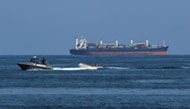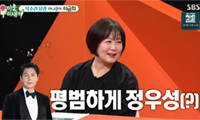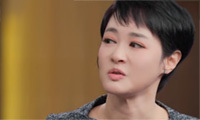Park Sangseek’ s Short Stories, Land of Tears, Homa & Sekey, 2018
His career path in academia and diplomacy is somewhat distant from this collection of short stories. However, his literary work is not totally strange because he majored in English literature at Seoul National University. In early 1960s, he came to the United States for his graduate work in political science and international relations and taught at a college in Tidewater. Then, he did not reveal his literature background and writer’s ambition to me. After his retirement, he returned to his youthful ambition to write a short story book.
This book presented a portrait of a young writer in the 1950s. Short stories in this collection made me return to my youthful days in the 1950s as well. 1959 was the year I graduated my high school and entered college. Korea was the land of tears as Park titled his first literary book. The Korean War, 1950-1953, destroyed South Korean society completely. Poverty was rather a luxurious word on the society in which I grew up. Three meals a day made a person affluent. A great majority of Korean people could not feed three meals a day. There was no enough jobs to those who were seeking. Only a few could enter high schools and only very few could enter colleges. I belonged to the affluent society. Park was my senior by seven years.
South Korea’s per capita income was about 76 US dollars in 1967 when I left Korea for my graduate work at Indiana University. Land of Tears was South Korea that lasted until late 1970s after a series of five-year economic development plans achieved their goals. Young people now in Korea cannot fully understand nor comprehend the Land of Tears. The Korean War and post-War South Korea in poverty-stricken economy must have been the most powerful motivator to Park to become a writer. That period of the Korean history have been recorded by many poets and writers, but forgotten and not enough. So this collection of short stories is appreciated.
As an adolescent, he himself witnessed the Korean War and poverty-stricken country in the post- War Korea. As a college student, he wrote a prize-winning short story. His literary ambition was high. Short stories in this volume were his works in the 1950s during his college days. His entry to Korean Ministry of Foreign Affairs made his writer’s ambition withhelf for some time. Sixty years later, he reopened his old manuscripts and published Land of Tears.
The first story was a conversion of an 8th century Silla poem to a short story. This was only one exception from the dreadful Korean War stories. It is based on the Silla Hyangga, in which an old man dedicated the beautiful flowers from the steep cliff to a young beautiful woman. The Song of Devotion was dedicated to a young woman by an old man who hid his love to a young woman who wanted the azalea picked up the flowers from the high cliff. No one could dare to pick up the flower, but the old man who loved her.
Some stories were Park’s fictions from revolutions or coups in developing nations in the 1950s and 1960s. The Wings of Icarus was based on a revolution in Kuwait and Thicker than Blood was based on a military coup in Vietnam. Turbulent politics and young revolutionary coup leaders were well sketched by this writer. The Legend of Lake Rotorua was a story based on a Korean young man in New Zealand during the Korean War. The places of these stories were outside Korea, but the time was based on the 1950s and early 1960s. Park’s imagination as a writer was flying very high and far to Middle East, Southeast Asia and New Zealand. The Wings of Icarus is a Greek myth and Lake Rotorua were not familiar vocabularies to me. Park must have acquired the Greek myth and a proper noun of Rotorua in New Zealand from his broad reading power of literature in the 1950s. I acquired these vocabularies much later when I became mature and I travelled world-widely.
A couple of short stories were on the corruption of the Korean bureaucracy in the 1950s. Everyone wanted a job or position inside the government bureaucracy. In a sense, there were two jobs available, one was farmer and another was bureaucrat. Then, small amount of money and gifts of apple box to the higher-up authorities were regarded as bribes and corruptions. The young soldiers’ training camp showed unnecessary mental and physical tortures to young trainees in the 1950s. Looking back, petty corruptions were laughable and the violence in the military organization was not pardonable. Crimes might be dictated by the time and space.
The Seven Shadows toward the end of this book was somewhat metaphysical and philosophical story reflecting a young man’s ambition as a writer, incorporating messages of four major Korean writers in the 1950s and the 1960s. A Dream in the Gray Zone might represent the mundane hopeless lives of a couple of artists, wounded North Korean soldiers, POWs who chose South Korea after the Korean War. All South Korean people struggled for living in the 1950s and 1960s. Young wounded North Korean refugees to the South must have more difficulties. Park tried to write stories as a neutral observer on them. These two stories could be existential reflections of Park’s inner world as a young artist in the 1950s.
The last story, The Pigeon and the Coin, was set in Paris. Tourists threw the coins into the fountain waters. Park tried to find the psychology of human beings throwing coins to the fountain. The author was interested in finding who was the first who threw the coins to the water and why. Then, he posted a Korean dictator who was ousted from the power discovered the Korean coin engraved with his face in the coin in a Paris fountain. Many coins in many nations were engraved with their political leaders, often dictators in developing nations. Of course, this was a fiction. The Korean president, Syngman Rhee, who was ousted from power by the college students’ street demonstrations in 1961 was to settle down in Hawaii where he spent his life as an independence fighter against the Japanese colonial rule in 1910-1945.
Land of Tears shall be one significant collection of short stories in the Korean literary history from post-war Korea, inquiring the existence of human beings in poverty-stricken political, social and economic conditions.
<Reviewed by Yearn Hong Choi>
스마터리빙
more [ 건강]
[ 건강]이제 혈관 건강도 챙기자!
[현대해운]우리 눈에 보이지 않기 때문에 혈관 건강을 챙기는 것은 결코 쉽지 않은데요. 여러분은 혈관 건강을 유지하기 위해 어떤 노력을 하시나요?
 [ 건강]
[ 건강]내 몸이 건강해지는 과일궁합
 [ 라이프]
[ 라이프]벌레야 물럿거라! 천연 해충제 만들기
 [ 건강]
[ 건강]혈압 낮추는데 좋은 식품
[현대해운]혈관 건강은 주로 노화가 진행되면서 지켜야 할 문제라고 인식되어 왔습니다. 최근 생활 패턴과 식생활의 변화로 혈관의 노화 진행이 빨라지고
사람·사람들
more
“취미생활로 다진 친목… 선후배들과 만든 모교사랑”
사진러브한인 사진 동호회 사진러브(회장 크리스 고)는 13일 용수산에서 송년모임을 갖고 한 해를 마무리하는 뜻깊은 시간을 가졌다. 이날 모임에…

[홀인원] 이상원 박사
일반외과 전문의 이상원(왼쪽) 박사가 지난 9일 뉴포트비치 소재 골프장 9번 홀(152야드)에서 레스큐 클럽으로 친 샷이 그대로 홀에 빨려 들…
[송년행사 게시판] 재미시인협회
재미시인협회(회장 지성심)는 오는 20일 오후 4시 가든스윗호텔에서 한 해를 마무리하며 동인지 ‘외지’ 제35집 출판 기념회와 ‘제23회 재미…
[송년행사 게시판] 향군단체 연합
6.25 참전유공자회와 대한민국 육군협회 등 남가주 지역 향군 단체 연합은 19일 오전 11시30분, 용궁에서 송년 행사를 개최한다. 드레스코…
[송년행사 화보] “이웃과 함께 나누고 지인과 함…
KYCC13일 윌튼 플레이스 초등학교에서 열린 ‘한인타운청소년회관(KYCC) 홀리데이 카니발’이 성황리에 막을 내렸다. 올해는 KYCC 창립 …
많이 본 기사
- ‘엡스타인 망령’ 못떨치는 트럼프…트럼프 가린 파일공개 파장
- 이스라엘, “공격표적 된다” 서방 체류 유대인들에 귀국 권고
- 美, 베네수엘라 근해서 유조선 또 추적중…3번째 나포 가능성
- 삼성·SK, 트럼프의 ‘對中 AI 주도권 확보’ 구상 참여 의사
- 스페이스X 로켓 폭발에 근처 여객기들 ‘아찔’…항공안전 우려
- 한러, 모스크바서 비공개 북핵 협의…러 “韓과 논의 없어” 부인
- 젤렌스키 “美와 종전논의 ‘건설적’…유럽과 추가협의 필요”
- 내란전담재판부법 오늘 본회의 상정…여야 필리버스터 격돌
- “수십년 된 약물이 알츠하이머병 뇌세포 사멸·인지 저하 완화”
- 월가 전문가 “관세 여파 美물가 급등 충격 없을 것”
- 한국계 NASA 우주비행사 조니 김 “우주서 김치·밥 그리웠다”
- 30년 만에 의문의 비극…과 동기에 피살 ‘승승장구’ MIT 교수
- 위즈덤트리 플래너건 “美 경기침체 징후 없어”
- 샌프란 정전 대부분 복구…웨이모 로보택시는 일시 중단
- 공수처 지휘부 재판 오늘 시작… ‘강등’ 정유미 집행정지 심문
- 이금희, 이상형으로 ‘혼외자 논란’ 정우성 꼽자..서장훈 “눈 낮으시네요” 일침
- 법무副장관 “피해자보호위해 엡스타인파일서 트럼프사진 삭제”
- 엡스타인 파일 공개 다음날 트럼프 사진 삭제…야당서 탄핵 경고
- 워싱턴 ‘개선문’·백악관서 UFC…트럼프의 건국 250주년 구상
- 맘다니 승리 이끈 ‘감당 가능 생활비’, 내년 선거 화두 급부상
- 김주하, 이혼사 최초 고백 “ ‘불륜’ 전 남편에 맞아 고막 파열..목 졸린 적도”
- 판례 잘못 인용해 머스크 손들어준 판사… “AI 쓰다 오류” 의혹
- “노는 것도 지겨워” 박미선, 유방암 투병 중 ‘SNS 공구’ 갑론을박
- 백악관 “인플레, 목표치보다 낮아…금리 인하 여지 충분”
- 청와대 내년부터 본격화…여민관 ‘정책허브’로
- ‘매관매직’ 尹부부 금주 동반 재판행…특검, 최종 법리 검토
- “산타 지금 어디쯤?”…한국서도 70년 전통 전화 안내 즐긴다
- BTS 정국과 열애설 후 첫 SNS..에스파 윈터, 커플 타투는 가렸다
- 아마존, 키보드입력 데이터 분석해 위장취업 北노동자 적발
- ‘공천개입’ 이준석 첫 특검 출석… “尹과 공범엮기 무리한 시도”
- ‘최초+최초+최고’ 안세영, ‘허벅지 내리치는 투혼’→왕중왕전도 석권... ‘11회 우승’ 역대 최초 상금 100만 달러 돌파
- 엡스타인 파일 공개 다음날 트럼프 사진 삭제…야당서 탄핵 경고
- ‘부상 아웃 공식 확정’ 이강인, 절뚝일 때부터 이상했다 “왼쪽 허벅지 근육 이상”... 폼 최고였는데 아쉬워
- ‘이젠 SD 송성문’ 3루엔 ‘3억 5000만 달러’ 마차도 버티는데... 단장이 답했다 “다양한 역할 소화할 것”
- 신민아♥김우빈, 결혼식날 전한 깜짝 … 1
- 요르단 “美 시리아 IS 공습에 참여…안보 위협 저지”
- 젤렌스키 “우크라 선거 방식, 푸틴이… 3
- 尹 김건희특검 첫 조사 8시간 반 만에 종료…6개 혐의 모두 부인
- BTS “새앨범 녹음 끝나…2026년은 방탄소년단의 해”
- 美, 우크라戰 종전 중재 속도…마이애미서 우크라·러 연쇄회동
- 美·이집트 등 4개국, 가자 평화구상 진전·후속조치 논의
- [건강포커스] “밤에 더 자주 깨는 어르신, 다음 날 인지수행 능력 떨어져”
- ‘反트럼프’ 공화 큰손, 작년 대선에만 약 5억4천800만달러 썼다
- 교황, 전세계 추기경 바티칸 소집…내달 7∼8일 첫 회의
- ‘새댁’ 함은정, 결혼식 하자마자..내조의 여왕
- 머스크 재산… 사상 초유 7천억달러 돌파
- ‘열애설→결별설 겪은’ 제니·지드래곤, 단둘이 ‘MMA’ 대상 쓸어갔다
- 마두로 정권 더 옥죄는 美…베네수 연안서 유조선 추가 나포
- 위성락 “내년부터 농축·재처리·핵잠 한미협의 동시다발 진행”
- “네타냐후, 트럼프 만나 ‘이란 추가 타격’ 설명 계획”
1/5지식톡

-
 ☝️해외에서도 가능한 한국어 선생님…
0
☝️해외에서도 가능한 한국어 선생님…
0이 영상 하나면 충분합니다!♥️상담신청문의♥️☝️ 문의 폭주로 '선착순 상담'만 진행합니다.☎️ : 02-6213-9094✨카카오톡ID : @GOODEDU77 (@골뱅이 꼭 붙여주셔야합니다…
-
 테슬라 자동차 시트커버 장착
0
테슬라 자동차 시트커버 장착
0테슬라 시트커버, 사놓고 아직 못 씌우셨죠?장착이 생각보다 쉽지 않습니다.20년 경력 전문가에게 맡기세요 — 깔끔하고 딱 맞게 장착해드립니다!장착비용:앞좌석: $40뒷좌석: $60앞·뒷좌석 …
-
 식당용 부탄가스
0
식당용 부탄가스
0식당용 부탄가스 홀세일 합니다 로스앤젤레스 다운타운 픽업 가능 안녕 하세요?강아지 & 고양이 모든 애완동물 / 반려동물 식품 & 모든 애완동물/반려동물 관련 제품들 전문적으로 홀세일/취급하는 회사 입니다 100% …
-
 ACSL 국제 컴퓨터 과학 대회, …
0
ACSL 국제 컴퓨터 과학 대회, …
0웹사이트 : www.eduspot.co.kr 카카오톡 상담하기 : https://pf.kakao.com/_BEQWxb블로그 : https://blog.naver.com/eduspotmain안녕하세요, 에듀스팟입니다…
-
 바디프렌드 안마의자 창고 리퍼브 세…
0
바디프렌드 안마의자 창고 리퍼브 세…
0거의 새제품급 리퍼브 안마의자 대방출 한다고 합니다!8월 23일(토)…24일(일) 단 이틀!특가 판매가Famille: $500 ~ $1,000Falcon: $1,500 ~ $2,500픽업 & 배송직접 픽업 가능LA…
케이타운 1번가
오늘의 1면
오피니언
 한영일 / 서울경제 논설위원
한영일 / 서울경제 논설위원[만화경] 웰다잉 인센티브
 캐슬린 파커 워싱턴포스트 칼럼니스트
캐슬린 파커 워싱턴포스트 칼럼니스트 [캐슬린 파커 칼럼] 아이들을 온라인에서 보호하기
 양상훈 수필가ㆍ시인
양상훈 수필가ㆍ시인 [한국춘추] 경제대공황ㆍ제2차 세계대전 승리로 극복한 루스벨트 리더쉽

[왈가 왈부] 고환율에 외환 건전성 완화·서학개미 규제… 미봉책 아닌가요
 수잔 최 한미가정상담소 이사장 가정법 전문 변호사
수잔 최 한미가정상담소 이사장 가정법 전문 변호사 [수잔 최 변호사의 LIFE &] AI 시대 편리함에 안주하지 말자
 김도년 성균관대 건축학과 교수 스마트도시·건축학회장
김도년 성균관대 건축학과 교수 스마트도시·건축학회장 [로터리] 지멘스가 만드는 미래 동네
1/3지사별 뉴스

퀸즈장로교회 ‘사랑의 바구니’130개 이웃에 전달
퀸즈장로교회가 18일 크리스마스를 앞두고 교인들의 정성과 사랑이 듬뿍 담긴 ‘사랑의 바구니’ 130개를 소방서와 경찰서, 요양원, 선교회, 그…
시민권 박탈 착수⋯매달 200명

“이웃 돌보는 여러분이 동역자”
워싱턴성광교회(담임목사 임용우)는 18일 한인단체와 소방서‧도서관 등에 총 2만9천 달러의 성금을 전달했다. 지난 2011년부터 15년째 지역…
소기업 지원에 1천만 달러 투자

백악관 “인플레, 목표치보다 낮아…금리 더 일찍 내렸어야”
케빈 해싯 백악관 국가경제위원회(NEC) 위원장은 21일 중앙은행인 연방준비제도(Fed·연준)가 “금리를 더 일찍 내렸어야 했다”고 말했다.해…
엡스타인 파일 공개 다음날 트럼프 사진 삭제…야당서 탄핵 경고

오늘 하루 이 창 열지 않음 닫기 




















































.png)


댓글 안에 당신의 성숙함도 담아 주세요.
'오늘의 한마디'는 기사에 대하여 자신의 생각을 말하고 남의 생각을 들으며 서로 다양한 의견을 나누는 공간입니다. 그러나 간혹 불건전한 내용을 올리시는 분들이 계셔서 건전한 인터넷문화 정착을 위해 아래와 같은 운영원칙을 적용합니다.
자체 모니터링을 통해 아래에 해당하는 내용이 포함된 댓글이 발견되면 예고없이 삭제 조치를 하겠습니다.
불건전한 댓글을 올리거나, 이름에 비속어 및 상대방의 불쾌감을 주는 단어를 사용, 유명인 또는 특정 일반인을 사칭하는 경우 이용에 대한 차단 제재를 받을 수 있습니다. 차단될 경우, 일주일간 댓글을 달수 없게 됩니다.
명예훼손, 개인정보 유출, 욕설 등 법률에 위반되는 댓글은 관계 법령에 의거 민형사상 처벌을 받을 수 있으니 이용에 주의를 부탁드립니다.
Close
x